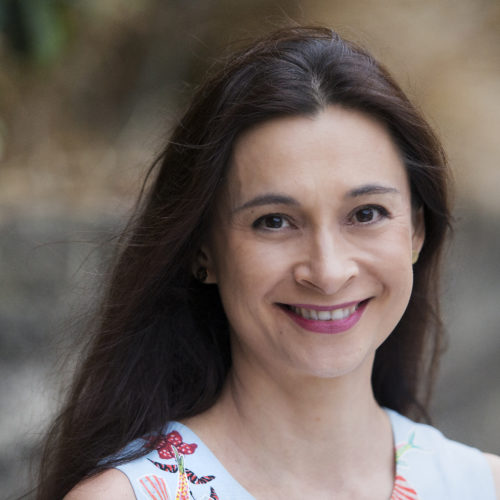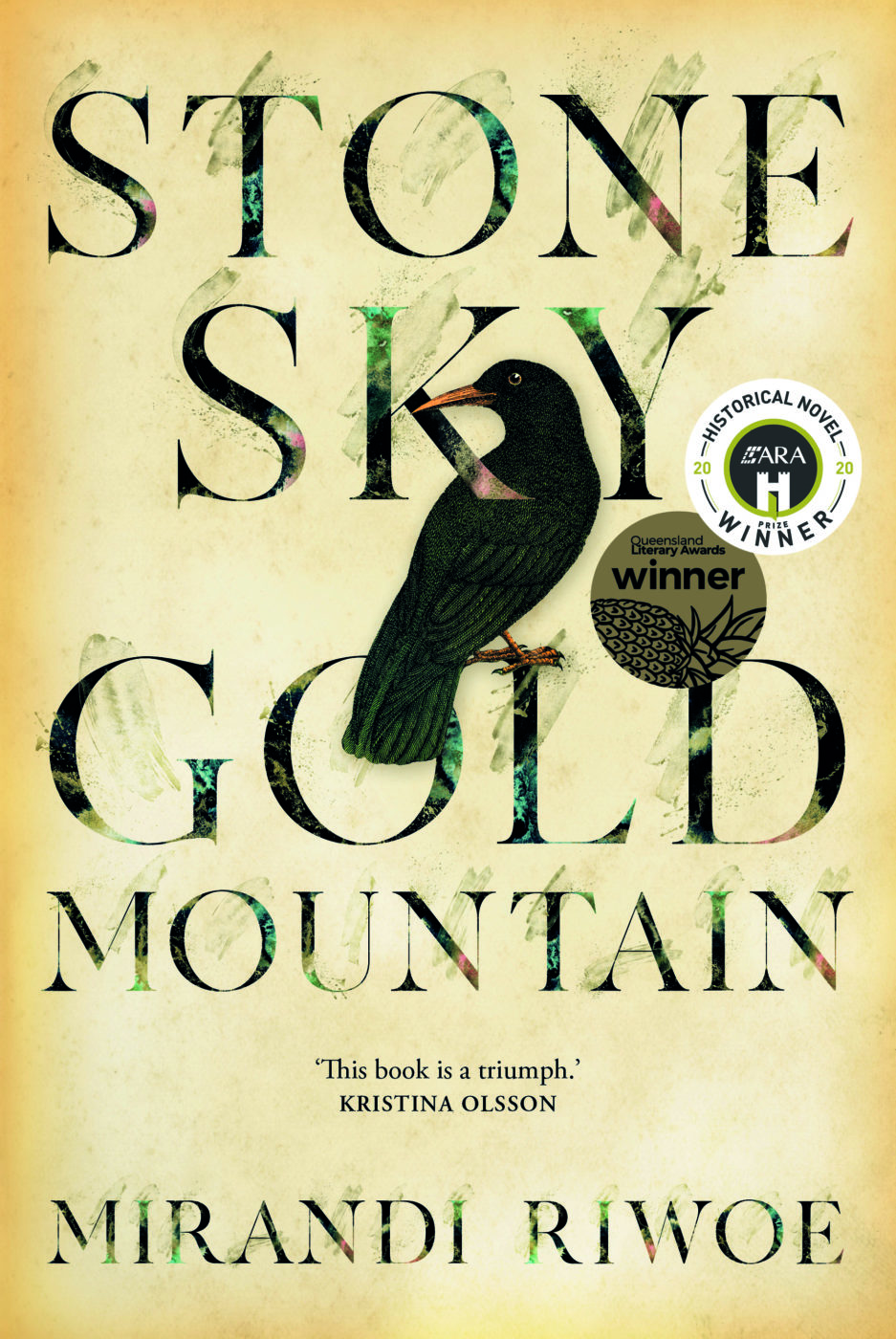
About the author
Mirandi Riwoe
Mirandi Riwoe is the author of The Fish Girl which won Seizure’s Viva la Novella V and was shortlisted for the Stella Prize. Her novel, Stone Sky Gold Mountain, won the Queensland Literary Award for Fiction and the inaugural ARA Historical Novel Prize. Her work has appeared in Best Australian Stories, Meanjin, Griffith Review and Best Summer Stories. Mirandi has a PhD in Creative Writing and Literary Studies (QUT).
About the book
Set during the gold-rush era in Australia, this remarkable novel is full of unforgettable characters and deals with timeless questions of identity and belonging.
Family circumstances force siblings Ying and Lai Yue to flee their home in China to seek their fortunes in Australia. Life on the gold fields is hard, and they soon abandon the diggings and head to nearby Maytown. Once there, Lai Yue gets a job as a carrier on an overland expedition, while Ying finds work in a local store and strikes up a friendship with Meriem, a young white woman with her own troubled past. When a serious crime is committed, suspicion falls on all those who are considered outsiders.
Evoking the rich, unfolding tapestry of Australian life in the late nineteenth century, Stone Sky Gold Mountain is a heartbreaking and universal story about the exiled and displaced, about those who encounter discrimination yet yearn for acceptance.
Judges' report
In Stone Sky Gold Mountain, Mirandi Riwoe has subverted the historical Gold Rush-era novel and provided us with a lyrical, character-driven piece of historical fiction that explores identity, friendship, belonging, and what it means to exist on a land that is not your own.
Told from the perspective of two Chinese recent immigrants (siblings Mei Ying and Lai Yue) and Meriem, a white woman who works for for a sex worker on the outskirts of Maytown on Kuku-Yalanji land, Riwoe creates nuanced characters whose perspectives are often absent from this particular era of fiction or used as a footnote in history. In doing so, she has injected a unique exuberance to the genre and illuminated the experiences of people during that time beyond the pervasive white colonial narrative.
With lyricism and intelligence, Riwoe writes loyally to a period of history while simultaneously reminding the reader of the parallels between the 1870s and modern Australia: the violence and racism against First Nations people and new immigrants at the hands of white settlers; the casualised misogyny; and the varying experiences of people based on their class. Riwoe is clear-eyed and unsentimental in her approach – these comparisons are not made heavy-handedly, but presented as they are: an undeniable part of Australia, then and now.
Further reading
Reviews
‘…Riwoe masterfully wields the interiority of marginalised characters to destabilise dominant colonial narratives… This is innovative historical fiction, and a vital reappraisal of an oft-glorified period in Australian history.’ Laura Elizabeth Wollett, Australian Book Review
‘Riwoe’s fiction… can be interpreted as an ongoing act of overhaul. Her work retells nineteenth-century histories from the perspectives of young Asian women, bringing historically sidelined characters and stories to the fore. ‘ Mindy Gill, Sydney Review of Books
‘In its exploration of race, language, privilege, class, exile and identity, Riwoe’s novel is transcendental and transformative.’ Rashida Murphy, ArtsHub
Links
Read ‘Five Questions with Mirandi Riwoe’, Liminal Mag
Listen to ‘Take Home Reading: Mirandi Riwoe’ via The Wheeler Centre


